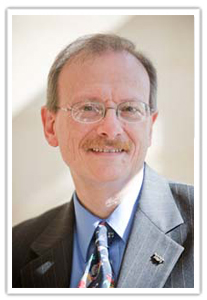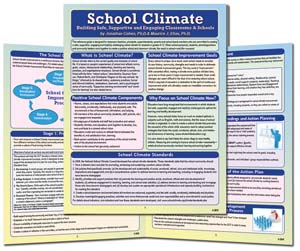 Authors publishing with National Professional Resources include leading experts in a variety of specialty fields in education, special education, and psychology. Dr. Maurice Elias, author of the guide School Climate: Building Safe, Supportive, and Engaging Classrooms and Schools, is a leading authority on the topic of social emotional learning and character development in children, families, and schools. At Rutgers University, Dr. Elias is a professor and director of clinical PhD training. He also is the Director of the Rutgers Social-Emotional Learning Lab and Coordinator of Improving School Climate for Academic and Life Success (ISCALS) at Rutgers’ Center for Applied Psychology. He is a founding member of the leadership team for CASEL (the Collaborative for Academic, Social, and Emotional Learning), as well as the Co-founder of the Consortium on the School-Based Promotion of Social Competence. In addition, he authors a blog on social emotional learning at Edutopia.org.
Authors publishing with National Professional Resources include leading experts in a variety of specialty fields in education, special education, and psychology. Dr. Maurice Elias, author of the guide School Climate: Building Safe, Supportive, and Engaging Classrooms and Schools, is a leading authority on the topic of social emotional learning and character development in children, families, and schools. At Rutgers University, Dr. Elias is a professor and director of clinical PhD training. He also is the Director of the Rutgers Social-Emotional Learning Lab and Coordinator of Improving School Climate for Academic and Life Success (ISCALS) at Rutgers’ Center for Applied Psychology. He is a founding member of the leadership team for CASEL (the Collaborative for Academic, Social, and Emotional Learning), as well as the Co-founder of the Consortium on the School-Based Promotion of Social Competence. In addition, he authors a blog on social emotional learning at Edutopia.org.
On his Edutopia blog, Elias recently posted an entry discussing the common challenges when implementing social emotional learning (SEL), along with suggestions for overcoming these challenges.
Curriculum-based social and emotional learning (SEL) and related programs “are necessary but not sufficient to produce generalizable skill gains in their recipients,” explained Dr. Elias. For such programs to succeed, they must be thoroughly integrated into the fabric of the school, from academics, to language, to school culture. It is essential for school leadership to provide an implementation support system that is available to offer guidance and connect new and experienced practitioners for consultative problem solving.
Elias identifies potential barriers to effective implementation of SEL programs, and provides suggestions for addressing each. These include
- Understanding: Staff must understand that SEL and character development represent a set of skills and habits that ultimately mediate academic, civic, and workplace success. True academic and life success integrates the intellectual, emotional, and social facets of learning
- Potency and Integration: The adequate dosage of an SEL-related program is at least 25 to 30 times over the course of the school year, for at least 30 minutes per week.
- Ongoing Support: Provide training to develop Leadership Teams and help them evolve in professional learning communities. Teams require at least 3 years to implement SEL programs, with ongoing support of outside experts.

Elias argues that “implementing SEL in schools can no longer be considered an option. It is a developmental right and an ethical and moral imperative.”
For more on improving the social, emotional and character development of your students and the climate of your school, view the full post at http://www.edutopia.org/blog/avoiding-common-mistakes-when-implementing-sel-maurice-elias, and check out Dr. Elias’ quick-reference laminated guide on school climate at https://www.nprinc.com/school-climate-building-safe-supportive-and-engaging-classrooms/








